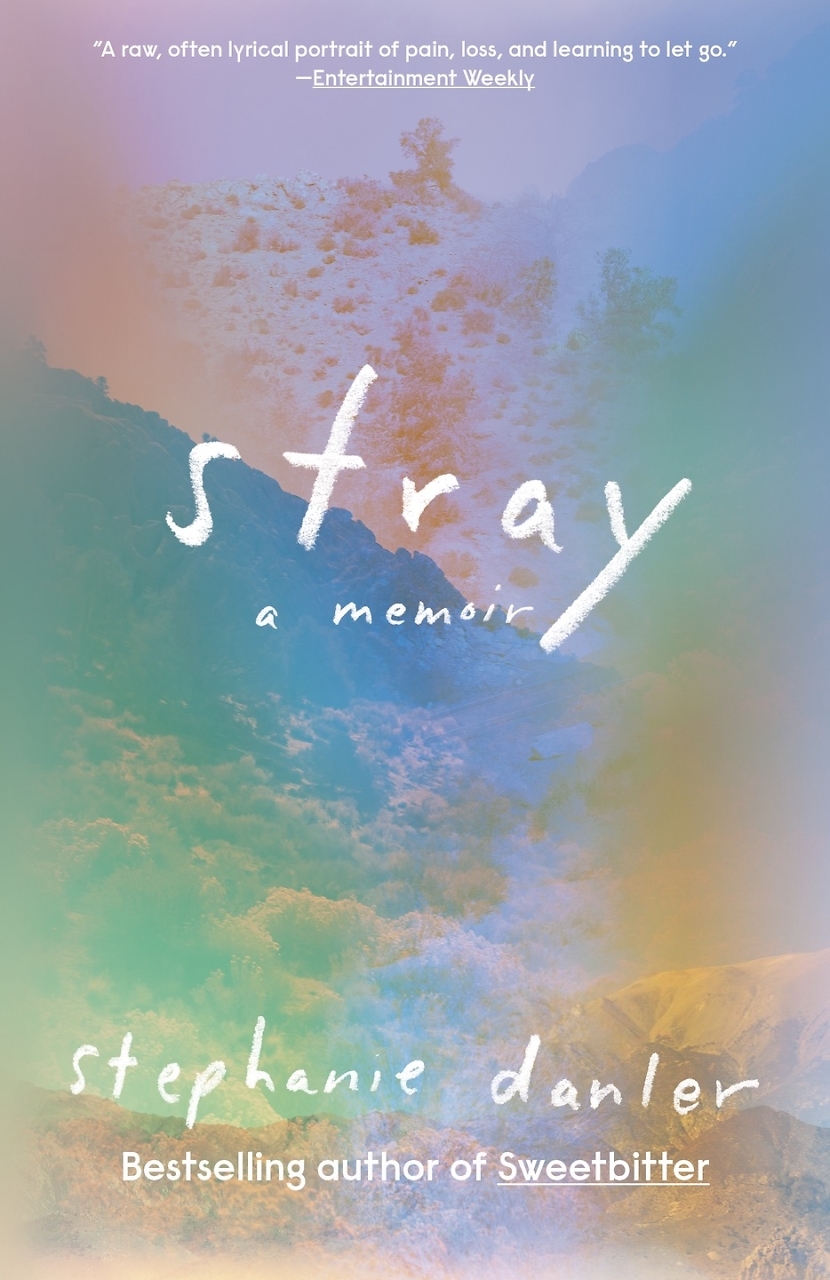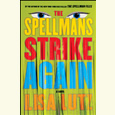Sacred Harmony
Editors Wendy Reed and Jennifer Horne have collected diverse essays on faith written by Southern women
In 2006, when Wendy Reed and Jennifer Horne published All Out of Faith: Southern Women on Spirituality, they were a little nervous. Southern women themselves (from Arkansas and Alabama, respectively), they knew the region to be a bastion of conservatism, fundamentalism, and tradition. In other words, they knew that Southerners take their faith seriously. They worried that readers might be less than welcoming of essays about soul-searching, experimentation, and doubt—not to mention the outright rejection of organized religion. They were therefore surprised and pleased to find, as they traveled in support of the book, “a community of like-minded spirits, not nearly as vocal or organized or visible as their traditionally religious counterparts, but strong in their conviction that no one could tell them what to believe just because they lived in the South.” In their new collection, Circling Faith, Reed and Horne continue their exploration of spirituality among Southern women, with an emphasis on “staying open [and] being malleable.”
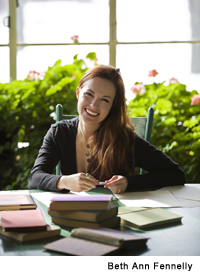 The collection opens with a bang: in “Facing Altars: Poetry and Prayer,” outspoken poet, memoirist, and Texan Mary Karr—who recently released a CD of songs she co-wrote with Nashvillian Rodney Crowell—describes how poetry and prayer accompanied her journey from addiction and depression to a surprising conversion to Catholicism in 1996. “Poetry never left me stranded,” she writes, “and as an atheist most of my life, I presumed its mojo was a highbrow, intellectual version of what religion did for those more gullible believers in my midst—dumb bunnies to a one, the faithful seemed to me, till I became one.” Now prayer, too, “has yielded comfort and direction—all well and good. But imagine my horror when I began to have experiences of joy. … Nothing can maim a poet’s practice like joy.”
The collection opens with a bang: in “Facing Altars: Poetry and Prayer,” outspoken poet, memoirist, and Texan Mary Karr—who recently released a CD of songs she co-wrote with Nashvillian Rodney Crowell—describes how poetry and prayer accompanied her journey from addiction and depression to a surprising conversion to Catholicism in 1996. “Poetry never left me stranded,” she writes, “and as an atheist most of my life, I presumed its mojo was a highbrow, intellectual version of what religion did for those more gullible believers in my midst—dumb bunnies to a one, the faithful seemed to me, till I became one.” Now prayer, too, “has yielded comfort and direction—all well and good. But imagine my horror when I began to have experiences of joy. … Nothing can maim a poet’s practice like joy.”
From Karr’s struggle to acclimate herself to unexpected joy, the collection moves on to “Chiaroscuro: Shimmer and Shadow” by Memphis author Susan Cushman, who writes of her deep conversion to the Orthodox faith during the 1980s. Her transformation included changing her name for a time (to “Marye” in honor of St. Mary of Egypt), covering her head in church, marriage to an Orthodox priest, learning to paint icons, and receiving spiritual direction from the nuns of Holy Dormition Monastery. Ultimately, though, she sought balance: “After about five years of what some of my friends called my ‘nun phase,’ I took off my head covering and embraced my Southern roots. Manicures, make-up, and jewelry returned to my arsenal, and my long-neglected hair again received layered haircuts and blond highlights.” Through her painting, and later her writing, Cushman works toward healing from childhood abuse and the acceptance that sometimes, as Mother Gabriella from the monastery suggests, “we also have to learn to live with brokenness.”
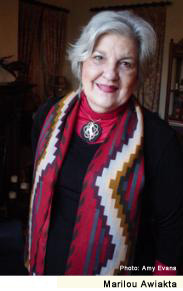 In “Taking Terroir on Faith,” Oxford, Mississippi, poet Beth Ann Fennelly, attempting to understand her adopted Southern home, examines the practice of geophagy, or “dirt-eating,” and its curious attraction for generations of Southerners. Fennelly compares her research on geophagy to her search for a more comfortable alternative to the abandoned Irish Catholic teachings of her childhood: “I approach life’s big decisions as a reader, because I believe we learn from the stories of others, that we educate our emotions by considering how different people at different times have faced the deep mystery of being human.” She finds, however, that her rational study of world religions can take her only so far. She writes, “Even religious experts acknowledge the limitations of such a logical quest when they call for the ‘leap of faith’—there’s a gap one must jump over, and following the bread crumbs of knowledge dropped in the forest by others before me can bring me closer but can’t get me there.”
In “Taking Terroir on Faith,” Oxford, Mississippi, poet Beth Ann Fennelly, attempting to understand her adopted Southern home, examines the practice of geophagy, or “dirt-eating,” and its curious attraction for generations of Southerners. Fennelly compares her research on geophagy to her search for a more comfortable alternative to the abandoned Irish Catholic teachings of her childhood: “I approach life’s big decisions as a reader, because I believe we learn from the stories of others, that we educate our emotions by considering how different people at different times have faced the deep mystery of being human.” She finds, however, that her rational study of world religions can take her only so far. She writes, “Even religious experts acknowledge the limitations of such a logical quest when they call for the ‘leap of faith’—there’s a gap one must jump over, and following the bread crumbs of knowledge dropped in the forest by others before me can bring me closer but can’t get me there.”
The rational approach may have its adherents, but other writers in the collection take a more visceral view. In “Amazons in Appalachia,” Marilou Awiakta, an East Tennessee native and renowned chronicler of her Appalachian and Cherokee heritage, tells the story of Nanyehi or “Beloved Woman,” an eighteenth century Cherokee warrior, mother, tribe leader, peace-treaty-council delegate, and elder much sought out for her wise counsel. The essay’s dreamlike style allows the narrator to journey out of time to meet Nanyehi and more fully absorb her message of hope, courage, and perseverance. In a similar nod to her ancestors, native New Orleanian Brenda Marie Osbey reveals quite a bit more than one might expect, judging by the title of “Why We Can’t Talk to You About Voodoo.”
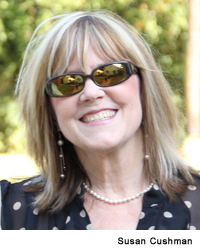 Signs of faith in the here and now appeal to other writers in the collection. In “Magic,” Georgia essayist Amy Blackmarr detects a deeper resonance within simple objects like beaded earrings, a broken Indian knife made of flint, a carved box from Honduras: “I surround myself with the things I can see that reach the place in me that loves, that is open, that knows wonder and astonishment and joy, and remember that the whole world is God, when I open my eyes.” In “Going to Church: A Sartorial Odyssey,” Nashville memoirist and singer-songwriter Marshall Chapman also addresses the pervasiveness of God within all of creation: “I am not a churchgoer,” she writes, yet “it’s like the whole world has become my church. And every breath I take is a prayer.” Georgian Barbara Brown Taylor, an Episcopal priest since 1984, meditates on her church’s teaching about the sacraments in “What the Body Knows” and concludes that “Every material thing opens a door to the infinite. Every bodily activity holds sacred possibility.”
Signs of faith in the here and now appeal to other writers in the collection. In “Magic,” Georgia essayist Amy Blackmarr detects a deeper resonance within simple objects like beaded earrings, a broken Indian knife made of flint, a carved box from Honduras: “I surround myself with the things I can see that reach the place in me that loves, that is open, that knows wonder and astonishment and joy, and remember that the whole world is God, when I open my eyes.” In “Going to Church: A Sartorial Odyssey,” Nashville memoirist and singer-songwriter Marshall Chapman also addresses the pervasiveness of God within all of creation: “I am not a churchgoer,” she writes, yet “it’s like the whole world has become my church. And every breath I take is a prayer.” Georgian Barbara Brown Taylor, an Episcopal priest since 1984, meditates on her church’s teaching about the sacraments in “What the Body Knows” and concludes that “Every material thing opens a door to the infinite. Every bodily activity holds sacred possibility.”
The writers of Circling Faith tell intensely personal stories of love and loss, change and growth, searching and finding, but none is more poignant than that of artist and writer Barbara Robinette Moss, who died in 2009 after a long illness. In “Signs of Faith,” written during her convalescence from surgery, she writes about various brushes with death throughout her life and how she and her loved ones were preserved, perhaps miraculously so. Ultimately, although unsure of all the answers, she realizes, “No matter what—there was an awareness inside me, so unexplainable.” Trusting in that awareness, she is able finally to say, “Thank you, God,” despite her circumstances.
Pulitzer Prize-winner Alice Walker, interviewed here by Valerie Reiss, echoes that sentiment. A proponent of yoga and meditation, Walker suggests that a prayer of thanksgiving is “the best prayer that anyone could say. I say that one a lot. ‘Thank you’ expresses extreme gratitude, humility, understanding. People pray and pray—and that’s fine. But, for me, ‘Thank you’ just basically says it all.”
Three Circling Faith: Southern Women on Spirituality contributors—Marilou Awaikta, Susan Cushman, and Beth Ann Fennelly—will read from their essays and sign copies of the collection at Burke’s Book Store in Memphis on July 12 at 5 p.m.
